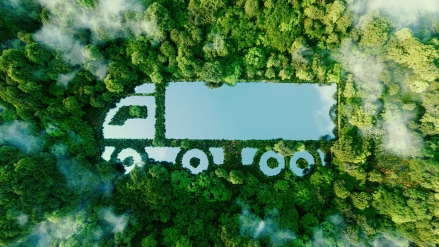– By Nishith Rastogi
On World Environment Day, we’re reminded of our fundamental interconnectedness and interdependence with each other and our environment. Corporations, governments, and individual consumers alike have deepened their awareness of living sustainably. This is why a global commitment to sustainability must involve reimagining existing trade and commerce methods that ensure growth for all and minimize its impact on our planet.
Supply chains and logistics operations, as a cornerstone of global trade, are ideal candidates for the radical change needed to spearhead sustainability efforts. If implemented well, sustainable supply chains and fulfillment operations can be a strategic advantage that can redefine industry standards and consumer expectations.
The Last Mile: A Crucial Battlefront in Climate Change
One of the most complex, emission- and cost-intensive aspects of fulfillment is the last mile, the final leg of the journey where the product is delivered to each consumer’s doorstep. With the rapid increase in e-commerce, the last mile has become both a challenge and a ripe opportunity for sustainable transformation in many ways.
Electric Vehicles Take the Lead:
Embracing electric vehicles (EVs) is more than an environmental statement—it’s a smart business decision. With lower operational costs over time and less environmental impact per delivery, EVs represent a forward-thinking approach to modern logistics.
Smart Routing: Efficiency Meets Sustainability:
Modern routing isn’t just about finding the fastest path from Point A to Point B; it’s about optimizing for minimal environmental impact by reducing the number of empty miles for each vehicle. Using advanced algorithms, companies like Locus help streamline routes, reducing unnecessary mileage and emissions—a win for the planet and the bottom line.
From Big Boxes to Minimalist Packaging:
Reevaluating how products are packaged is a small change that can have big impacts. By minimizing waste and focusing on recyclable materials, logistics can significantly cut down its carbon footprint. It’s about doing more with less, proving that efficiency and sustainability go hand in hand. With greater awareness of the long-term effects of elaborate packaging, even consumers are warming up to a minimalist approach.
Collaborative Efforts for a Greener Future:
Achieving real sustainability isn’t a solo journey. By forming alliances across industries and with governments, logistics companies can spearhead the change towards a more sustainable future. These partnerships forge paths that pave the way for innovative solutions that redefine what’s possible in logistics.
Consumer Power: Driving Change from the Checkout Cart:
Today’s consumers are better informed and their purchases are values-driven. They favor brands that are not just about profits but also about purpose. By keeping a close track of and aligning with these ever-evolving expectations around sustainability, companies can cultivate loyalty and trust, transforming their brand into a banner for sustainability.
Why This Matters
As we mark another World Environment Day, the message is clear: reimagining supply chains and practices in the logistics sector holds the key to unlocking a sustainable future. It’s not about making surface-level changes, but analyzing each leg of the fulfillment chain and making significant investments that translate to tangible, sustainable outcomes, from warehouse to doorstep. This transformation is not just good for the planet— it’s essential for the future of the logistics industry.
The time is ripe to show that the logistics industry can lead by example, proving that economic growth and environmental health can go hand in hand. The road is long, but the direction is clear. Let’s pave the way for a greener tomorrow.
(Nishith Rastogi is the founder & CEO at Locus.)
(Disclaimer: Views expressed are personal and do not reflect the official position or policy of Financial Express Online. Reproducing this content without permission is prohibited.)
